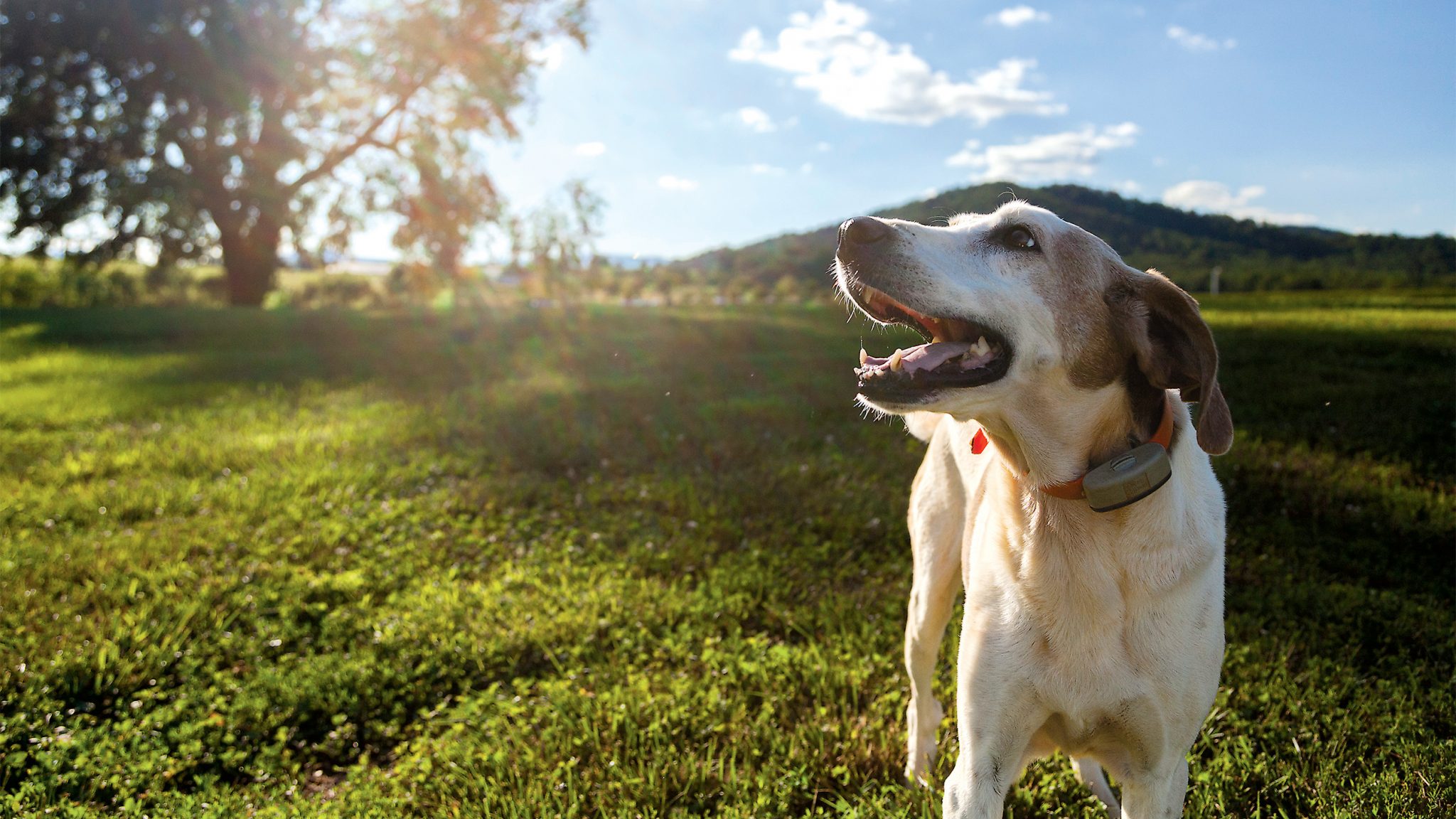At Early Mountain Vineyards, 30 miles northeast of Charlottesville, one worker has outlasted every other employee: Settler, the resident vineyard dog, who’s been on the property more than a decade.
With large brown eyes and a solid build, Settler begins each day eager to patrol the winery’s five acres of unfenced land. He also finds time to socialize with colleagues, snack on treats, and accept belly rubs.
“Farm dogs guard crops, and we’re not unlike that,” says Heather Carbonneau, the vineyard’s hospitality manager. “It’s an important job.”
Virginia wine country might be better known for rosé and Cabernet Sauvignon than for canine culture, but dogs have in fact become staples across the Commonwealth’s wineries—as common as corks but much more beloved.
Early Mountain is in Madison, in the foothills of the Blue Ridge Mountains, where many non-human creatures have come to appreciate the property’s carefully cultivated vines. Bears, birds, and rabbits love grapes. Deer eat the leaves as well as the fruit. Groundhogs dig around the roots. Thus, the most essential task of a vineyard dog is to chase away these interlopers. (Fortunately, dogs don’t usually crave grapes, as the fruit can be toxic to them.)
They play other roles at wineries, too. Some are mascots; others are pets that interact with guests—Barrel Oak Winery in Delaplane considered a Hungarian vizsla its “official greeter” until he passed away in July.
At Ankida Ridge Vineyards in Amherst, a Maremma sheepdog lives in the winery’s pasture and guards the flock; a mutt named Jack shoos away raccoons and opossums and protects the chickens (on hand to eat vine-damaging insects). Veritas Vineyard and Winery in Afton employs Shadow, a pit-bull mix, and Cara, a hound mix, to patrol the land. At Linden Vineyards, a beagle named Gilley—who died earlier this year at age 15—became an unexpected hero when she bullied a 400-pound bear away from the grapes.
Settler began his career when his vineyard’s previous winemaker, who came from Bordeaux, decided to adopt a few dogs from the Charlottesville Albemarle SPCA. Then-president Marcie Siegel explains that the idea wasn’t novel to a Frenchman. “There is a long history of this in Europe,” she says, noting that when the staff traveled to vineyards in Spain and France, as well as South Africa, they were often welcomed by dogs before they met the owners.
Among the vineyard’s original pack was a dog named Gypsy who wandered off, another named Wino who stuck around until his death earlier this year, and Settler—who looks something like an English foxhound and is estimated to be between 11 and 13 years old. He and Wino conveyed with the property, previously called Sweely Estate, when owners Steve and Jean Case (of AOL fame) bought it in 2011.
Leaving the dogs behind might sound cruel to a typical pet owner. But taking them away from their routine and five acres of relative freedom would have been far tougher on them, says Carbonneau. Settler is, by all appearances, happy among his current colleagues, and the feeling is mutual. “He’s definitely a staff member,” Carbonneau says, adding that the shy, sweet-tempered dog is a “great listener.”
Settler is approaching his favorite time of year—the autumn harvest, when the vineyard is full of people plucking grapes. In his twilight years, he works a truncated schedule and doesn’t patrol at night, as he often did when he was younger.
He hasn’t lost his knack for scaring away deer with a solitary bark, though, and when it’s not too cold, he still sleeps outside under the stars.
This article appears in our October 2016 issue of Washingtonian.


















